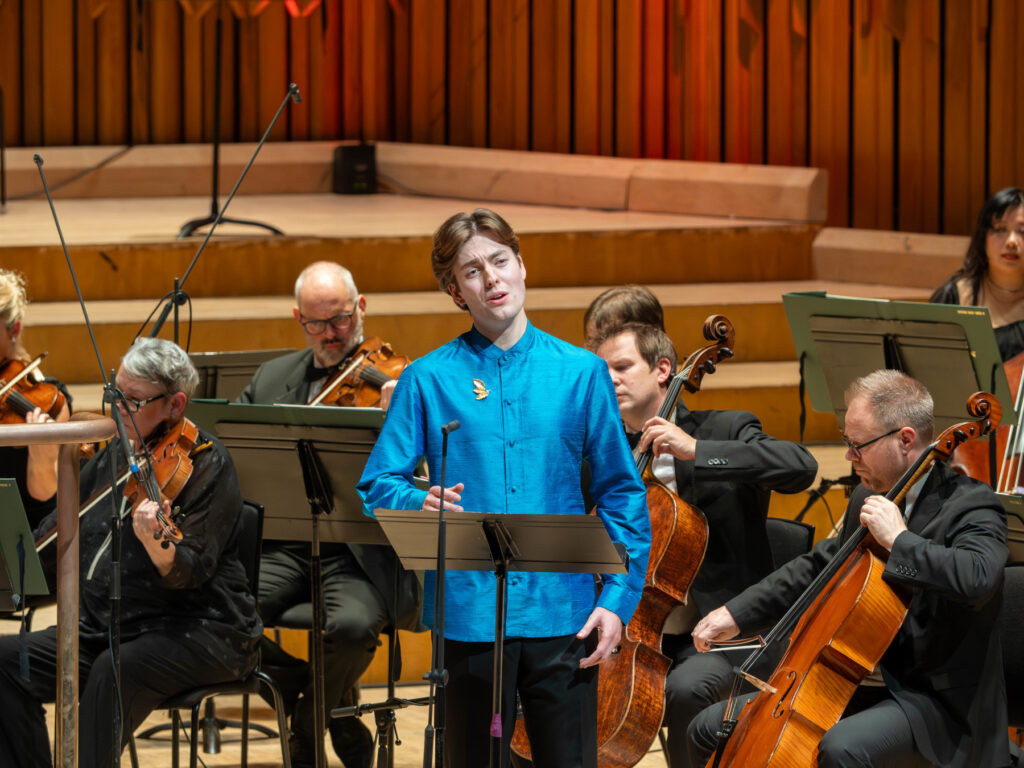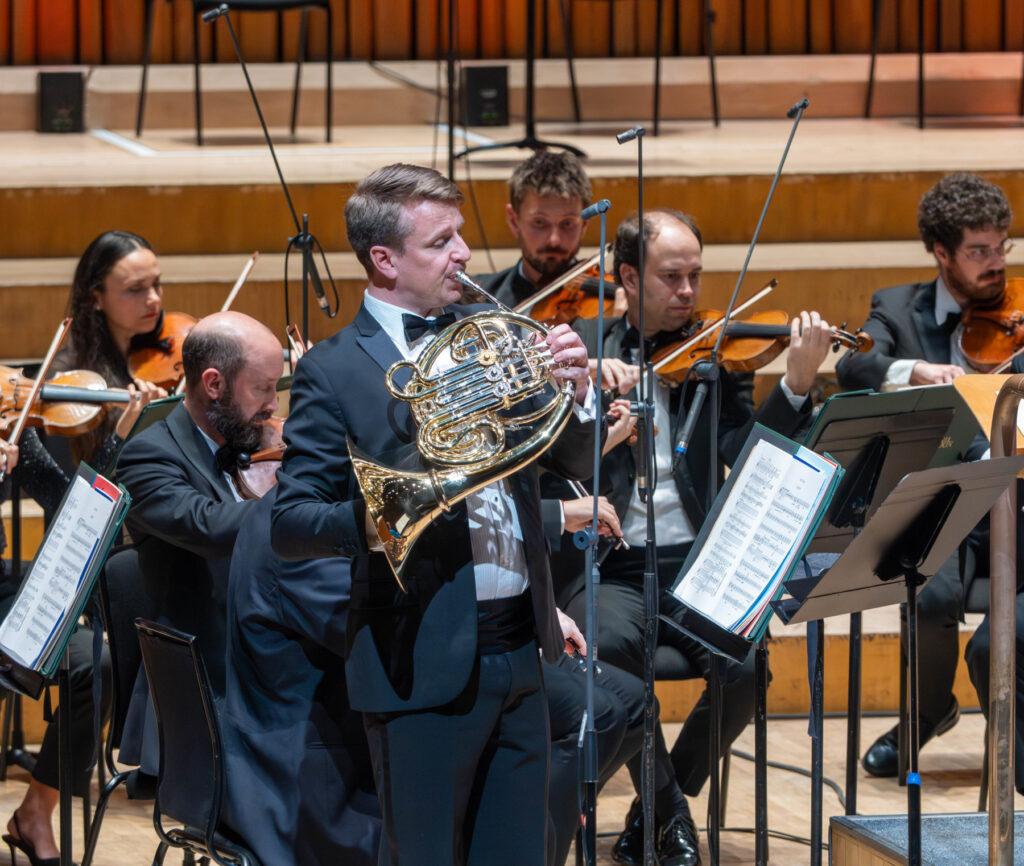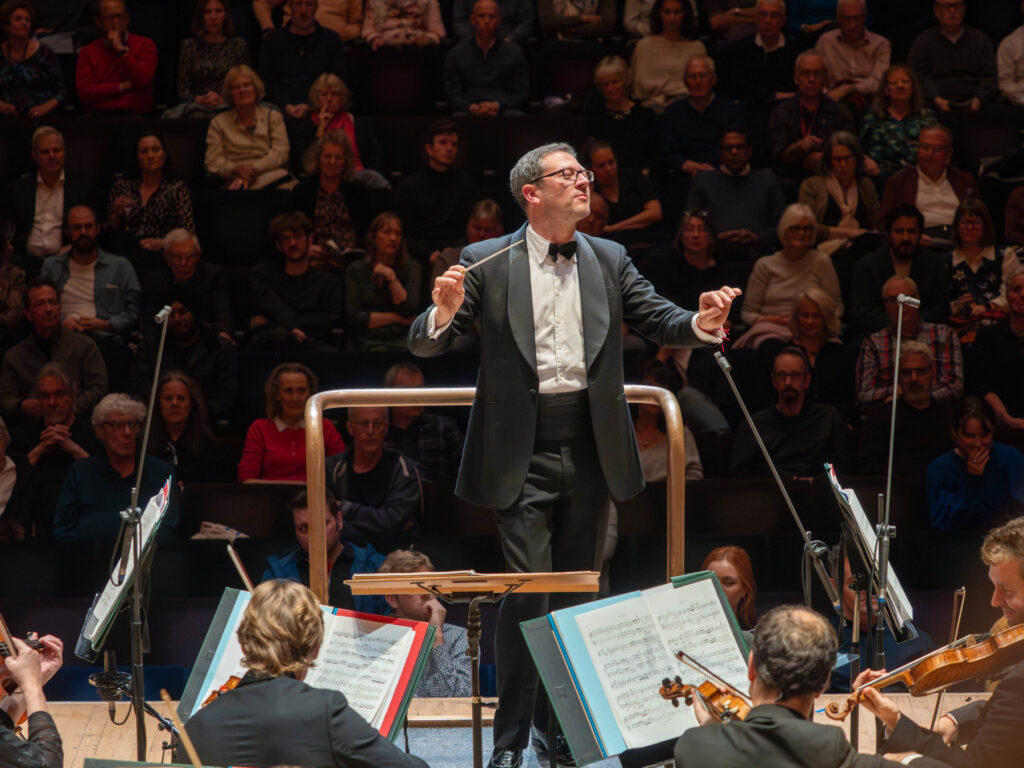These days it’s comparatively rare to come across a concert programme consisting entirely of works by different British composers, performed by an orchestra made up of mostly British-born musicians, with two British soloists and a British conductor to boot. Should this be an occasion for further flag-waving? Or a quietly patriotic recognition of the fact that the often derided “Land ohne Musik” of the past can easily hold its own with competing traditions elsewhere? Or an acceptance that music quite simply crosses all borders?
By the early decades of the 20th century, the Austro-German influence in the musical world had effectively lost the stranglehold it once had, with only the last Romantic standing, Richard Strauss, to carry the flag forward. Music was already developing in many other directions. At the Salzburg Festival of 1935 Sir (as he later became) Adrian Boult premiered with the Vienna Philharmonic a work by the Sir (as he later became) Arthur Bliss, with the slightly innocuous title of Music for Strings. In his autobiography, the composer, still regarded as a modernist albeit moving away from a strong debt to Stravinsky, recalled the rehearsals and hearing the concertmaster, Arnold Rosé, muttering “Schwer, schwer, aber gut” (= Difficult, difficult, but good). One wonders if Weingartner, Toscanini, and Bruno Walter, amongst those sitting in the audience, came to the same conclusion.

The work is both a demonstration of writing persuasively for a large body of strings and also a superb vehicle to showcase the qualities of the 33-member Sinfonia of London, here under the direction of John Wilson. There isn’t really a dull moment in the work. Wilson seized on the energico marking of the first section, savouring the angularity of the opening rhythms with their displays of lithe muscularity, the following surges and waves expertly controlled, the strong contrapuntal elements providing a solid underpinning. Contrasts were there in the slower central section with its prevailing mood of molto sostenuto, a solo cello peeping out from within the textures and a short solo passage for three double basses highlighting the intricacy of the writing. The hints of lushness in the rich chromaticism were a reminder of how the Hollywood film music tradition was developing, the darkness of colour very prominent here. There was a scampering lightness to the final section, now that the clouds had lifted to allow broken skies with shafts of radiant sunlight, and the concluding Presto passages were driven along with a sense of utter exhilaration.
Of the remaining three works as interpretations I am much less sure, though there was no doubting their excellent technical realisation. The Fantasia on a Theme by Thomas Tallis by Vaughan Williams was the work that established this composer’s potential. When he composed it in 1910, his intention was also to exploit the acoustic and space of Gloucester Cathedral, where it was first performed. It is high on atmosphere, depending for its effects on a degree of reverberation time and pauses for sombre reflection, which the somewhat clinical Barbican surroundings did little to assist. In fact, I have never heard a truly satisfactory performance of the piece in this hall. Wilson’s placing of Orchestra II at the very back of the platform left the nine players feeling indistinct, and though there was careful attention to dynamics there was no feeling of enveloping warmth. Rather than saturated polyphony there was often a shimmering, impressionistic quality.

That is frequently cited as a characteristic of Delius’s music, described by Wilson in a short address to the audience as a marmite composer with music “which has to be suffered and teased off the page”. His nine-minute piece Late Swallows comes from the composer’s String Quartet and is an arrangement for string orchestra by Eric Fenby of its slow movement. The suggestion for this was made by Sir John Barbirolli as a tribute to Delius in 1962, the centenary year of his birth. Both Barbirolli and Sir Thomas Beecham were great champions of this composer’s music; these days there is nobody of equivalent stature. There was plenty of languor in this performance, embellished with pastel shading, but despite a fine and poetically inflected short solo from the Sinfonia’s leader, Charlie Lovell-Jones, one important dimension was missing. Delius needs an inner glow, a feeling of growing rapture aided by the right kind of illumination.
The score for Elgar’s Introduction and Allegro for Strings carries a reference to Shakespeare’s Cymbeline: “Smiling with a sigh”. This was a work on which Barbirolli for one lavished much affection. Wilson’s approach was very different. This was high-octane Elgar, and despite the beautiful solo contributions in the quartet playing and the undoubted virtuosic quality of the ensemble as a whole it all felt a little brusque. There was no deficit in emphasising the angularity of the rhythms or the seething energy of what Elgar called “a devil of a fugue”, but I listened in vain for evidence of the Nobilmente markings and those moments of tender inwardness which are part and parcel of this composer’s DNA.

The longest work in this concert, and the last to be written, was Britten’s Serenade for Tenor, Horn and Strings. This was the first time I had encountered the young British tenor Laurence Kilsby, and I was notably impressed. He starts with a number of advantages: the voice is pure honeyed-gold, a keenly controlled intensity of expression which is maintained in quite lovely, lyrical, legato lines, and a clarity of articulation which leaves little to be desired. His ability to develop and maintain a strong narration makes me think he is an ideal casting for Evangelist roles or indeed for any oratorio. The buttery tones he found in the first line of the second stanza of Pastoral, with the assonance in “The shadows now so long do grow”, were exquisite; the rich almost baritonal depths he conjured up for the concluding line of William Blake’s The Sick Rose, “Does thy life destroy” were chilling in their import; and in the grotesque octave swoops of the Lyke Wake Dirge setting he was fully alive to the terrifying fears of the Day of Judgement, every iteration of “Every nighte and alle” imbued with growing menace and desperation, so that “The fire will burn thee to the bare bone” was utterly shattering. Only very occasionally did I wish for more variation in the colouring of Kilsby’s voice, especially when lyricism overlaid the drama, such as in the repeated “Save me” in Keats’s Sonnet where the invocation could have been a little more imploring. Yet this is a minor quibble: Kilsby’s developing career is one to watch.
The tenor’s partner in this work is the horn, the solo part magnificently taken here by Christopher Parkes. Both soloists were well matched, especially in the Nocturne, the rise and fall expertly executed, and together with the full Sinfonia ensemble, sensitively accompanied by Wilson throughout, soaring to a stirring body of sound for “And grow for ever and for ever”. I relished the vibrancy Parkes found in the unaccompanied opening Prologue, yet it was the way he framed Britten’s setting of the Blake poem that I found even more remarkable. It is the horn that establishes the mood here, long before the tenor’s first note, and the dark, growling qualities Parkes displayed here, allied to unsettling rhythms and aching sounds from the strings, were a perfect example of tone painting. At the close, set against gently pulsating strings, I heard distinct echoes of the Misterioso fourth movement of Mahler’s Third Symphony. The only miscalculation came at the very end where the solo horn’s Epilogue rounds off the piece. Parkes played this from behind the closed back wall of the Barbican Hall. The individual notes must still be heard; here, it was like listening to very distant hunting calls from the next village caught on the wind.
Nobody should preach nationalism in music, for this is a universal language. However, as examples of creative inspiration and craftsmanship of the front rank, these five pieces rightly speak for themselves and formed a satisfying whole for this concert.
Alexander Hall
Vaughan Williams – Fantasia on a Theme by Thomas Tallis; Britten – Serenade for Tenor, Horn and Strings; Bliss – Music for Strings; Delius – Late Swallows; Elgar – Introduction and Allegro for Strings
Laurence Kilsby (tenor); Christopher Parkes (horn); Sinfonia of London, John Wilson (conductor)
Barbican Centre, London, 22 October 2025
Top image: John Wilson and the Sinfonia of London
All photos © Sisi Burn